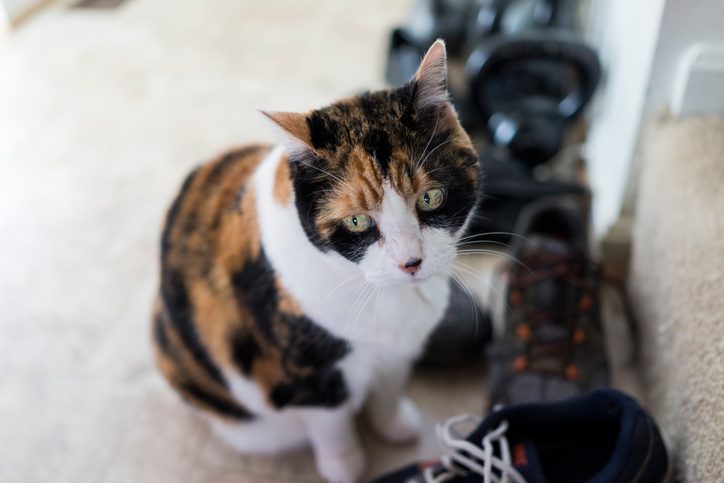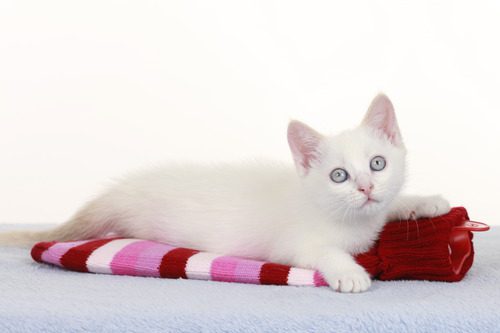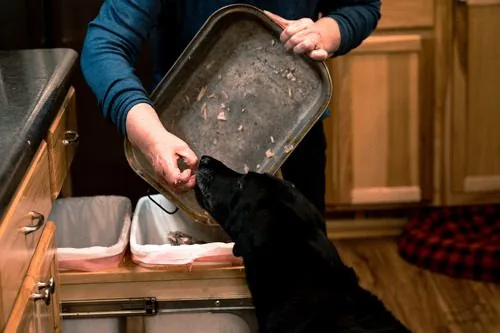You’ve probably heard of dogs having separation anxiety before, but did you know cats can too? Cats are just as likely to suffer from separation anxiety as dogs, although they may show it differently. If you are a cat owner, it’s important to learn how to recognize the signs of separation anxiety in your pet.
Read through the article below to learn more about feline separation anxiety. If you do suspect your cat is dealing with this problem, talk to your veterinarian for treatment and management options appropriate for your pet.

Signs of Separation Anxiety in Cats
If your cat is showing any of these signs, they might have separation anxiety.
Urinating or Defecating Outside the Litter Box
Urinating or defecating outside the litter box is often a sign that a cat is unhappy about something. However, it can also be an indication of a physical health problem, so you should take your cat to the vet to rule out health issues before assuming the problem is separation anxiety.
Destructive Behavior
Destructive behavior is extremely common in cats with separation anxiety. These cats may destroy household furniture and objects around the home, or they may prefer to destroy shoes and clothes instead. If your cat is only destructive when left alone, this is the likely cause.
Bouts of Aggression
Sometimes, cats who have separation anxiety may become aggressive every now and then. Sudden and unexplained aggression in your cat should always be checked out by a vet, as it can indicate a variety of underlying health problems. However, it may also be related to separation anxiety and the stress your cat feels when they expect to be left alone.
Crying When Alone
You may need to set up a recording device to catch this one, but if your cat cries a lot when left alone, this may indicate separation anxiety. Some cats cry for a few minutes and then return to their routines, however, and this typically is not separation anxiety.
Risks of Separation Anxiety in Cats
Below are some of the things that could cause separation anxiety in cats:
Working from Home
If you work from home or if you spent several years working from home before returning to the office, your cat is likely used to having you around. This may cause them to feel anxious when you leave and increase the risk of separation anxiety by quite a lot.
Infrequent Vacations
Families who stay home most of the year and don’t take very many vacations may have cats who experience separation anxiety. If your cat is not used to the idea of being left alone overnight, they may become very anxious when it does happen and could exhibit destructive behavior as a result.
Large Family
If you have a very large family, your cat may have separation anxiety. This is because your cat is likely used to someone being home all the time. It is rare for very large families to all leave home at once, so this can be upsetting to your cat when it does happen.
Management of Separation Anxiety in Cats
If your veterinarian does determine your cat has separation anxiety there are many ways you can help your pet.
Mental Stimulation
Mental stimulation is a great way to help your cat deal with separation anxiety. You can provide treat toys and puzzle balls for your cat to solve, which can help them focus on something other than their anxiety and get their mind off the issue. These toys are good at encouraging your cat to problem solve, too.
Treats and Rewards
You can encourage your cat to behave when alone by giving plenty of treats and lots of attention when you get back home. You may need to work up to this, however, by starting with just a few minutes at a time at first and increasing the amount of time from there.
Plenty of Playtime
Play with your cat interactively a little bit every day to ensure they don’t feel too lonely. This way, even when no one is at home, they won’t feel abandoned because you will have already spent some time together for the day.
Medication
If all else fails, you may need to talk to your veterinarian about anxiety medication for your cat. Your vet will likely ask you to try a variety of other methods before resorting to this tactic, however, so keep this in mind and consider other options first.
Birch Lake Animal Hospital Can Help with Cat Separation Anxiety
Feline separation anxiety may not be as obvious as the canine variety, but it is still a possibility that affects many pets. Cats who were adopted during Covid-19 lockdowns are particularly prone to having separation anxiety, but any cat can potentially develop this behavioral issue at any time in life.
Call (651) 426-2246 or book an appointment online with your Birch Lake Animal Hospital vet. They can give you recommendations about how to treat and manage your cat’s separation anxiety.
Recent Posts
About Birch Lake Animal Hospital
The staff at Birch Lake Animal Hospital seeks to provide the best possible medical care for our highly-valued patients and clients.





